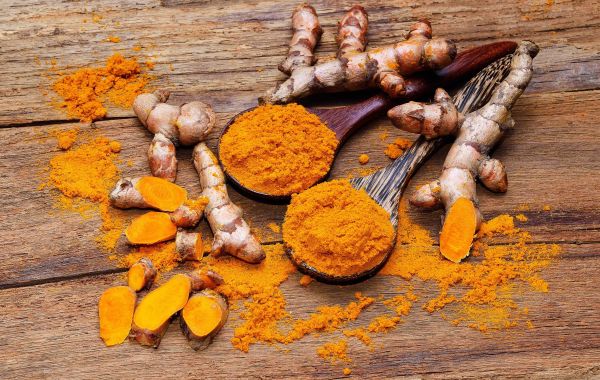Turmeric, a vibrant yellow spice commonly found in curry dishes, has been used for centuries not only as a culinary staple but also as a medicinal herb. Renowned for its distinct flavor and color, turmeric contains a bioactive compound called curcumin, which is responsible for its remarkable health benefits. In this comprehensive guide, we'll delve into the myriad of ways turmeric can boost your health and well-being.
Understanding Turmeric:
Turmeric (Curcuma longa) is a flowering plant native to South Asia. Its roots are ground into a fine powder, which is widely used in cooking and traditional medicine. Curcumin, the active ingredient in turmeric, is a powerful antioxidant and anti-inflammatory agent that contributes to its numerous health benefits.
Health Benefits of Turmeric:
- Anti-Inflammatory Properties:
Inflammation is the body's natural response to injury or infection, but chronic inflammation can lead to various diseases. Curcumin in turmeric helps combat inflammation by inhibiting inflammatory pathways in the body. Studies have shown that turmeric may alleviate symptoms of conditions such as arthritis, inflammatory bowel disease, and even certain types of cancer.
- Antioxidant Effects:
Free radicals, unstable molecules that can damage cells and contribute to aging and disease, are neutralized by antioxidants. Turmeric, rich in curcumin, acts as a potent antioxidant, protecting the body from oxidative stress and reducing the risk of chronic diseases such as heart disease, Alzheimer's, and cancer.
- Pain Relief:
Turmeric has been used traditionally to alleviate pain and discomfort. Its anti-inflammatory properties make it effective in reducing pain associated with conditions like osteoarthritis and rheumatoid arthritis. Some studies suggest that turmeric may be as effective as over-the-counter pain medications in managing certain types of pain.
- Improved Digestive Health:
Turmeric has long been used in traditional medicine to aid digestion. It stimulates bile production, which aids in the breakdown of fats and enhances digestion. Additionally, turmeric's anti-inflammatory properties may alleviate symptoms of digestive disorders like irritable bowel syndrome (IBS) and indigestion.
- Heart Health:
Curcumin in turmeric may benefit heart health by improving endothelial function, reducing inflammation, and lowering cholesterol levels. These effects may help reduce the risk of heart disease and stroke. Incorporating turmeric into your diet may promote overall cardiovascular health.
- Brain Health:
Several studies suggest that turmeric may have neuroprotective properties, potentially reducing the risk of neurodegenerative diseases like Alzheimer's and Parkinson's. Curcumin's antioxidant and anti-inflammatory effects may help protect brain cells from damage and improve cognitive function.
- Skin Health:
Topical application of turmeric may promote skin health and alleviate various skin conditions. Its anti-inflammatory and antimicrobial properties make it effective in treating acne, eczema, psoriasis, and other inflammatory skin conditions. Turmeric can also help reduce signs of aging and improve skin complexion.
How to Incorporate Turmeric into Your Diet:
Adding turmeric to your diet is easy and delicious. Here are some simple ways to incorporate this potent spice into your meals:
Golden Milk: Prepare a soothing cup of golden milk by simmering turmeric, milk (or a dairy-free alternative), and honey or maple syrup. Add a pinch of black pepper to enhance curcumin absorption.
Curry Dishes: Turmeric is a staple ingredient in curry powders and pastes. Use it to flavor a variety of curry dishes, soups, stews, and sauces.
Smoothies: Add a teaspoon of turmeric powder to your favorite smoothie for a nutritional boost. Pair it with ingredients like ginger, pineapple, mango, or coconut milk for a delicious flavor combination.
Roasted Vegetables: Sprinkle turmeric over roasted vegetables like cauliflower, sweet potatoes, and carrots for added flavor and health benefits.
Salad Dressings: Incorporate turmeric into homemade salad dressings by mixing it with olive oil, lemon juice, honey, and mustard for a tangy and nutritious dressing.
Conclusion:
Turmeric is more than just a spice – it's a powerful medicinal herb with a wide range of health benefits. From reducing inflammation and pain to improving heart and brain health, turmeric can enhance your overall well-being. By incorporating this golden spice into your diet regularly, you can unlock its full potential and experience the transformative effects it has to offer. Embrace the power of turmeric and reap the rewards of a healthier, happier life.







